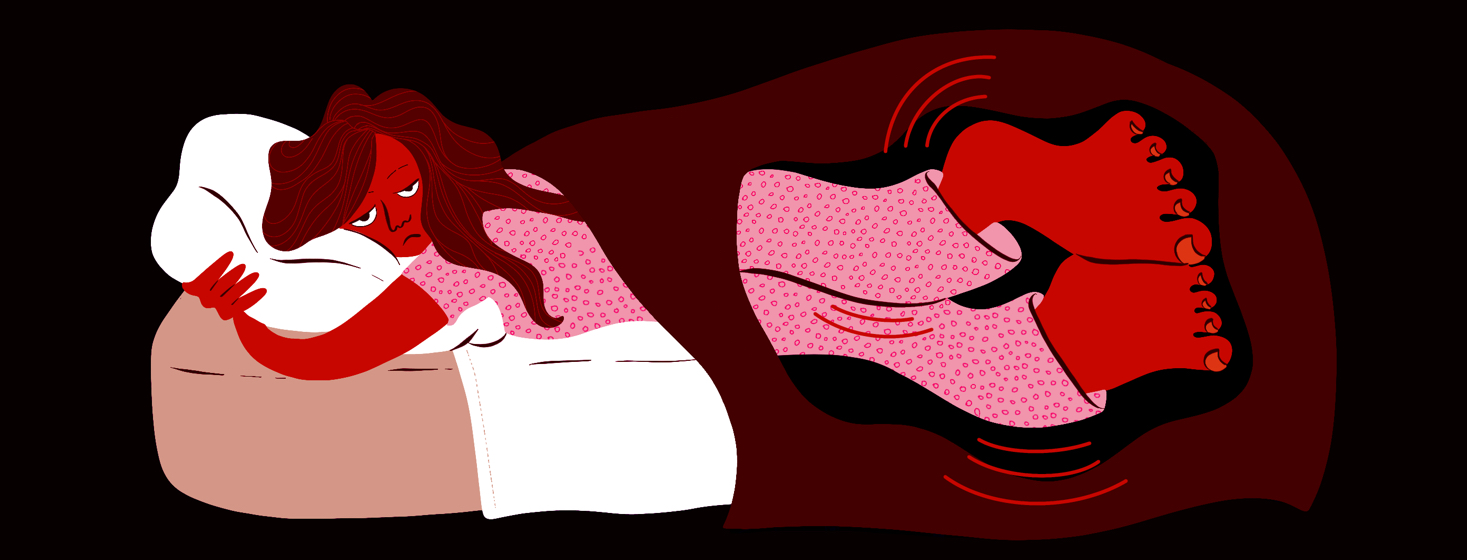Restless Legs Syndrome and the Lupus Link
I must've lost count of the list of symptoms that lupus has given me. I often feel like some of them have a cycle. I can be experiencing pain in a certain part of my body or have a really dry mouth, and it will continue for weeks, and then it seems to stop, and it might not re-emerge for months or even years later.
One such symptom that has been bothering me for the last year is incredibly painful – achy legs otherwise known as restless legs syndrome. The strange thing is that I used to get this a few years ago, and then it just seemed to stop. I'm not sure if I did anything different at the time that helped it to dissipate, but I certainly can't think of anything.
I sometimes dread going to bed because I know that horrible feeling of cramping is going to wake me up. I can be in deep slumber, but it always nudges me to become wide awake no matter how tired I am.
Last night was particularly bad for me. I had to get up and walk around the bedroom as nothing seemed to help. I ended up staying awake most of the night until it eased up, and I must have got a grand total of about 3 hours of sleep! Not good when you have a very active 4-year-old waking you up early in the morning!
What is Restless Legs Syndrome?
The main symptom of restless legs syndrome is an overwhelming urge to move your legs. It is also usually accompanied by painful feelings such as cramping or crawling sensations in the feet, calves, and thighs.1
The symptoms can range from mild to severe, and when it's the latter, it can really impact a person's daily life and sleep pattern.1 For me, it causes an unpleasant aching in my lower legs, and the best way I can describe it is like having menstrual cramps in my legs.
Restless Legs Syndrome causes
I was interested to find out that lupus patients are more susceptible to developing RLS, particularly one cause being anemia. I am anemic, so this could contribute to my RLS.
A study published in science direct online found that the prevalence of RLS is high amongst SLE patients. Concluding that out of the 42 patients in the study, the severity of the disease is high and occurs in 58-percent more than 4 nights per week.1
Other causes can include low dopamine levels (a type of neurotransmitter which the nervous system uses to send messages between nerve cells) it helps the brain to coordinate and regulate movement:1
- Pregnancy
- Chronic kidney disease
- Low magnesium levels
Restless Legs Syndrome triggers
Some triggers can set off the symptoms by taking certain drugs, including antidepressants, antipsychotics, and antihistamines. Other factors such as obesity, smoking, and drinking alcohol can also be a trigger.1
I have personally found that paracetamol can take the edge off the pain along with taking a bath with Epsom salts. Epsom salts are a great way of absorbing magnesium which helps to relax the muscles and decrease cortisol levels.

Join the conversation